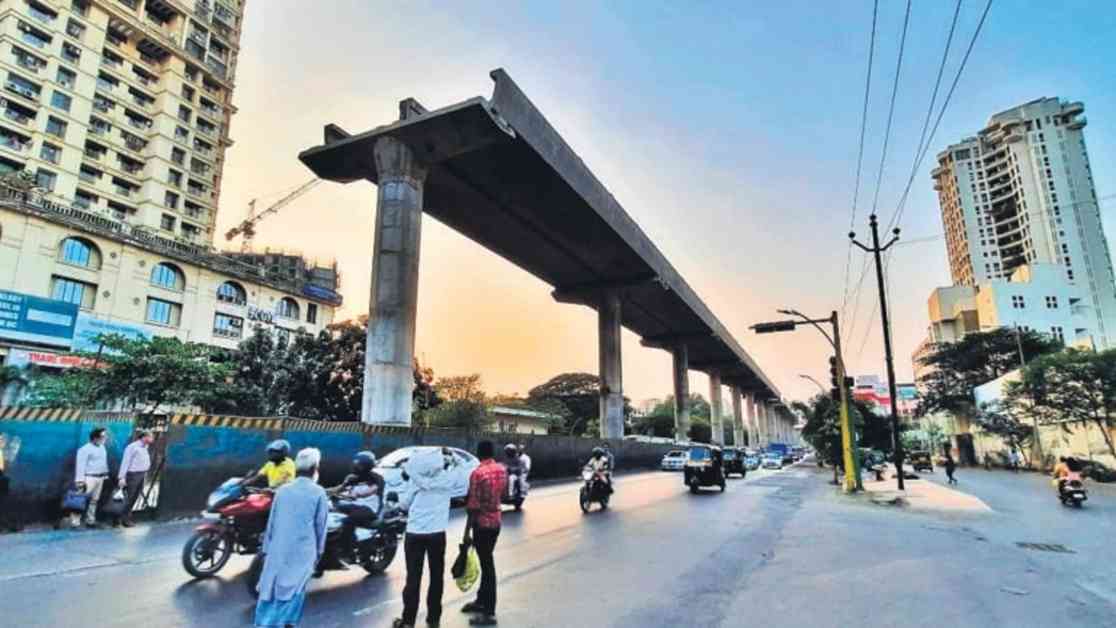Thane, a bustling city in Maharashtra, is set to undergo a significant transformation with the upcoming Thane Integral Ring Metro Rail project. The ambitious project, worth ₹12,200 crore, has garnered attention from various consultants vying to design a crucial initial phase of the metro corridor.
Initially, the project was under the purview of the Thane Municipal Corporation (TMC), but it has now been entrusted to the Maharashtra Metro Rail Corporation Limited (MahaMetro) for execution. This shift in responsibility highlights the magnitude of the project and the need for specialized expertise in its implementation.
Within a fortnight of the Union cabinet’s approval of the project, MahaMetro received proposals from five consultants to design approximately 8km of the 29km long circular corridor that will traverse key areas of Thane west. This phase of the project marks a crucial step towards realizing the vision of an efficient and modern metro system in Thane.
The five consulting firms that have submitted proposals for designing this initial section of the metro corridor include RITES Limited, STUP Consultants, LKT Engineering Consultants, Enia Design, and Systra MVA Consulting. Each firm brings its unique expertise and perspective to the table, promising innovative designs that will shape the future of transportation in Thane.
Shravan Hardikar, the managing director of MahaMetro, emphasized the importance of selecting the right consultant for the task. He stated, “The firm chosen will only design the stations. The entire 29 km will be split into 3 to 4 sections for construction efficiencies.” This strategic approach to the project’s design and construction underscores MahaMetro’s commitment to delivering a world-class metro system to the residents of Thane.
The proposed metro corridor will criss-cross some of the most congested residential areas in Thane, including Wagle Estate, Manpada, Waghbil, Balkum, Rabodi, and Thane Railway Station. These strategic locations have been carefully chosen to cater to the growing population and evolving urban landscape of Thane.
As part of the initial design phase, detailed plans will be prepared for six stations along the metro corridor, namely Waterfront (Hiranandani Estate), Waghbil, Vijay Nagari, Dongripada, Manpada, and Dr. Kashinath Ghanekar Natyagruha. These stations will serve as crucial hubs for commuters, connecting them to various parts of the city and facilitating seamless travel.
In addition to the initial phase of station design, geo-technical investigations will commence soon, laying the groundwork for the construction of the metro corridor. Bids for designing the remaining 14 stations will also be floated in the near future, further advancing the progress of the project.
The estimated cost of the 29 km metro corridor stands at ₹12,200.10 crore, reflecting a 12% increase from the previous evaluation. The governments of India and Maharashtra will share equal equity in the project, with funding coming from multilateral development banks and bilateral agencies.
The metro corridor is scheduled to be operational by 2029, serving as a vital link within Thane and connecting to the Mumbai Metro 4 route, which will run from Gaimukh to Wadala via LBS Road. This integrated transport network will enhance connectivity and accessibility for residents, easing congestion and promoting sustainable urban development.
Studies conducted on the project forecast a daily ridership of 6.47 lakh in 2029, 7.61 lakh in 2035, and 8.72 lakh in 2045. These projections underscore the growing demand for efficient public transportation in Thane and the surrounding areas, highlighting the significance of the metro project in meeting the evolving needs of the community.
The Thane Integral Ring Metro Rail project boasts a total length of 29 km, with 22 stations strategically located along the circular route. Notable stations on the corridor include Thane Railway Station, Rabodi, Balkum, Kolshet, Patlipada, Waghbil, Vijay Nagari, Manpada, Shivaji Nagar, and Wagle Estate. Each station has been carefully planned to cater to the specific needs of commuters and enhance the overall efficiency of the metro system.
In conclusion, the Thane Integral Ring Metro Rail project represents a transformative initiative that will reshape the transportation landscape of Thane. With the selection of consultants for the initial design phase and the progress made in planning and coordination, the project is well on its way to becoming a reality. As the metro corridor takes shape, it promises to bring enhanced connectivity, convenience, and sustainability to the residents of Thane, setting a new standard for urban transportation in the region.




















